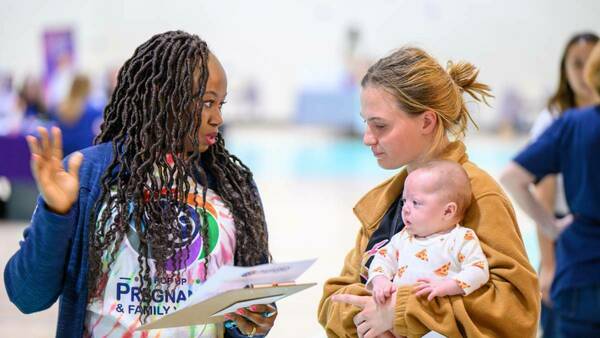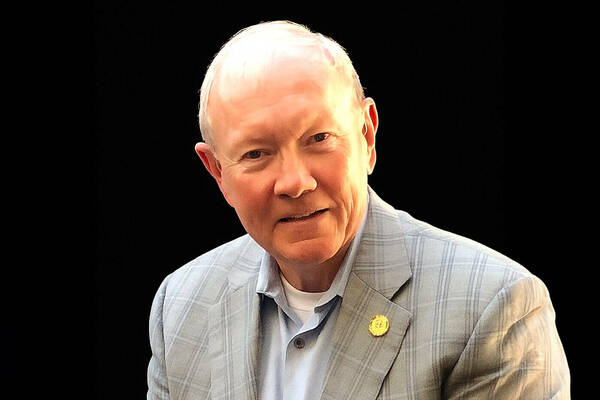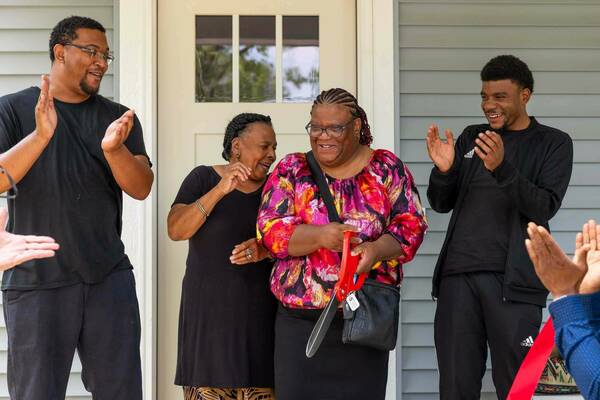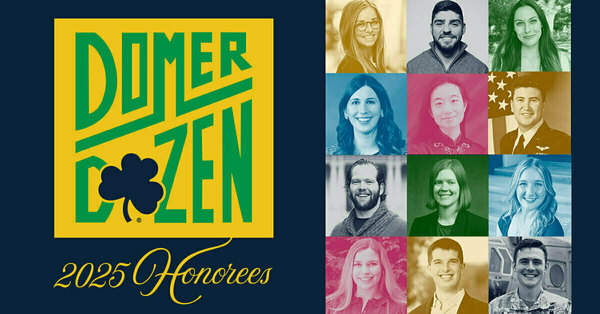Open-access database offers insights into U.S. congressional candidates

Each election cycle, thousands of candidates vie for seats in the U.S. House of Representatives and the Senate. Until now, there has been no comprehensive, publicly available resource cataloging what those candidates say about who they are or what they stand for.
A new open-access database called CampaignView, created by researchers at the University of Notre Dame, offers researchers, journalists and educators a powerful tool to understand congressional elections.
Developed by Rachel Porter, the Notre Dame du Lac Assistant Professor in Notre Dame’s Department of Political Science, the database project began in 2017 and has captured tens of thousands of campaign platform points and biographical narratives from congressional campaign websites over the past eight years.
“Information is the bedrock of democratic accountability, yet the vast majority of congressional candidates leave little trace in our political record,” said Porter, who is also a faculty fellow with the Lucy Family Institute for Data & Society. “CampaignView is designed to fill that gap.”

The database contains the biographies of more than 5,000 major-party candidates who ran for the U.S. House of Representatives between 2018 and 2022. Representing nearly 87 percent of all ballot-eligible contenders across both primary and general elections, CampaignView offers an unprecedented lens into how candidates communicate their campaign priorities and shape party identity.
Beyond the election cycle, data on candidate campaign messages can signal the future legislative agendas of electoral candidates and offer researchers valuable insights into evaluating key components of democracy.
While the database has clear academic value, its utility extends far beyond political science. Journalists covering campaigns, advocacy organizations researching candidate alignment and citizens seeking to better understand their choices at the ballot box all stand to benefit from the database’s usability.
Rather than relying on archived websites, many of which provide only incomplete or inconsistently preserved records, the CampaignView data was built by collecting campaign materials in real time, just before each state’s primary election, to ensure that the messages of candidates were accurately captured as they were delivered to voters during each election cycle.
To build the database, Porter worked with Colin Case, assistant professor of political science at the University of Iowa, and Sarah Treul, professor of political science at the University of North Carolina at Chapel Hill, to identify major-party candidates, manually collecting biographical and policy content from candidate campaign websites through extensive searches and follow-ups before each primary.

Using a standardized system, a team of undergraduate student annotators categorized more than 40,000 policy statements by topic and paired each candidate with additional information such as party affiliation, incumbency status and election outcomes. After each election cycle, information on each candidate’s primary election vote share was also collected from the State Election Offices.
Through the platform’s design, users can search by candidate name, party, year or district, and filter by policy area or platform text.
One of CampaignView’s most significant contributions is its focus on primary elections — the stage at which most congressional races are now effectively decided.
“With the decline of competitive general elections, understanding candidate behavior during the primaries is essential,” Porter said. “This is where messaging strategies are most revealing, and where the ideological direction of each party is shaped.”
The database is also well-suited to examine issues of political polarization, agenda-setting and strategic self-presentation — topics at the heart of contemporary political science, media studies and public discourse.
”Within certain topics, CampaignView can indicate substantial partisan differences across several years,” Porter explained. “Democrats consistently emphasize 'Energy and Environment,' 'Healthcare' and 'Social Welfare,' whereas Republicans discuss 'Immigration' and 'Government Operations' more frequently.”

Porter also pointed out that some key search topics exhibit notable changes within parties from one election cycle to the next. For example, prior to 2022, Democrats were roughly 25 percentage points more likely than Republicans to discuss the topic of education — a gap that narrowed significantly to about five percentage points in 2022. Trends in discussions of health care reveal a different pattern, however. In 2020, Democrats were 23 percentage points more likely to discuss health care in their campaigns compared to Republicans; and by 2022, the gap had widened to more than 40 percentage points.
Data from the 2024 election is in the final phase of processing, and plans are already being made to include the 2026 elections and beyond. Additional features of CampaignView may explore partisan language trends, gender differences in candidate messaging or how campaign rhetoric predicts legislative priorities once candidates enter office. The team also hopes to leverage artificial intelligence to automate the system so that users can acquire real-time information about candidates during the election cycle.
“Information is critical to a well-functioning democracy — and the University of Notre Dame is leading the way in research committed to upholding this essential pillar of democratic society,” Porter said. “Right now, we see CampaignView as a valuable resource for scholars and journalists to access information about candidates. In the future, we hope it can become just as valuable for voters.”
The development of the CampaignView data platform was supported by the Lucy Family Institute for Data & Society at the University of Notre Dame.
The database is hosted on Harvard Dataverse and available in multiple formats for easy integration with statistical software.
For more information or to explore the database, visit www.campaignview.org.
Contact: Tracy DeStazio, associate director of media relations, 574-631-9958 or tdestazi@nd.edu
Latest ND NewsWire
- Researchers deconstruct chikungunya outbreaks to improve prediction and vaccine developmentThe symptoms come on quickly — acute fever, followed by debilitating joint pain that can last for months. Though rarely fatal, the chikungunya virus, a mosquito-borne illness, can be particularly severe for high-risk individuals, including newborns and older adults. While the virus is common…
- Eck Institute investigator to strengthen postpartum care for Indiana mothersYenupini Joyce Adams, associate professor of the practice and maternal health lead for the Eck Institute for Global Health at the University of Notre Dame, is partnering with Beacon Health System to pilot a new, first-of-its-kind postpartum care model in the South Bend-Elkhart community.
- Gen. Martin Dempsey to speak at Notre Dame Forum event on ‘Hope, Global Stability and the Role of the United States’Gen. Martin Dempsey, the retired 18th chairman of the Joint Chiefs of Staff, will join University President Rev. Robert A. Dowd, C.S.C., for a fireside chat at 4 p.m. Friday (Oct. 10), as part of the 2025-26 Notre Dame Forum. The discussion, titled “Hope, Global Stability and the Role of the United States,” is part of the exploration of this year’s Notre Dame Forum theme, “Cultivating Hope.” It will take place in Rooms 215/216 of McKenna Hall and will also be livestreamed. The event is free and open to the public.
- University of Notre Dame joins the Global Coalition of Ukrainian StudiesThe University of Notre Dame has joined the Global Coalition of Ukrainian Studies after signing a memorandum of cooperation, formalized Sept. 24, at the Ukrainian Institute of America in New York City. Notre Dame joined four other American institutions that were also publicly welcomed to the coalition at this event: Arizona State University, Columbia University, Manor College and the Shevchenko Scientific Society.
- One year later, Inauguration Build a ‘dream come true’ for Habitat familiesOne year later, work on Inauguration Build 2024 is complete, offering shelter and so much more to five local families.
- Alumni Association and YoungND honor 2025 Domer DozenThe Notre Dame Alumni Association announced its 2025 Domer Dozen cohort, honoring 12 graduates ages 32 and younger for excellence in their contributions in learning, service, faith and work — the core pillars of the association’s mission.













